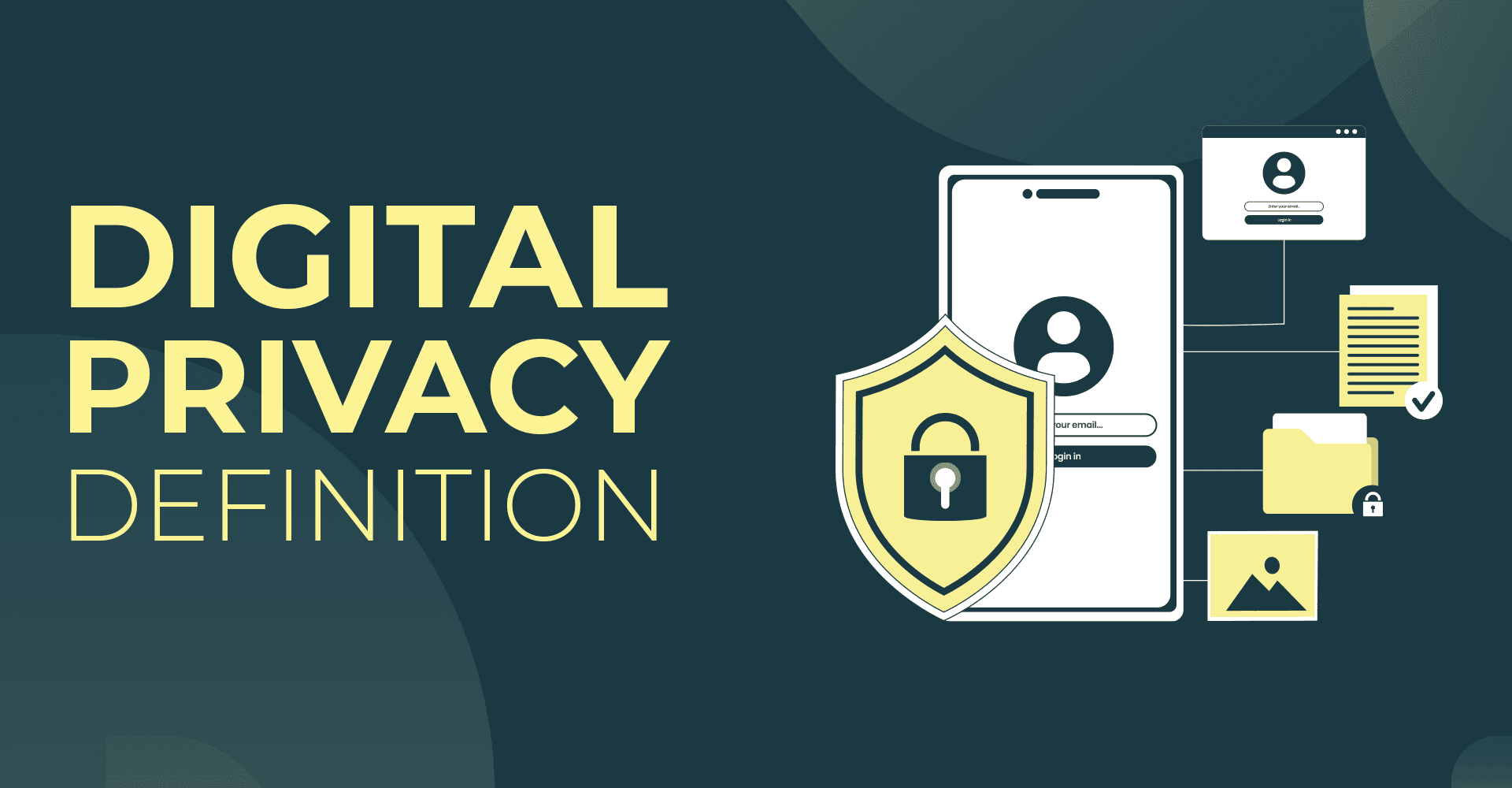Digital privacy is a hot topic as the widespread use of the internet has resulted in an increased risk of online identity theft, hacking, and data breaches. Data privacy laws such as the GDPR also mandate that companies take digital privacy seriously by clearly defining their privacy policies and how they store data.
This post will define digital privacy, and talk about how to protect and safeguard your digital privacy. If you’re looking for digital privacy examples instead, we cover that in our recent post detailing 5 digital privacy examples.
Digital Privacy Definition
Digital privacy is the ability of an individual to control and protect the access and use of their personal information as and when they access the internet. Digital privacy helps individuals stay anonymous online by safeguarding personally identifiable information such as names, addresses, and credit card details.
How Can We Protect Digital Privacy?
Digital privacy can be protected through various measures, such as using strong passwords, encrypting data, and being cautious about sharing personal information online. However, individuals also rely on laws and regulations to protect their privacy rights online.
Many countries have laws governing data protection and privacy, such as the General Data Protection Regulation (GDPR) in the European Union, which provides individuals with the right to access, correct, and erase their personal data held by organizations.
This means it is also incumbent on organizations to make sure that they’re handling data properly and informing users of how they collect, manage, store, and process data.
What is Digital Privacy and Safety?
Digital privacy and safety refer to the protection of individuals' personal information and security while using digital devices, technologies, and the internet. Digital privacy refers to the ability to control access to personal information, while digital safety refers to the measures taken to ensure the security of digital devices and data.
Digital privacy involves protecting personal information such as name, address, email, financial information, and other sensitive data from unauthorized access or use. Measures to protect digital privacy include using strong passwords, avoiding public Wi-Fi networks, avoiding clicking on suspicious links or attachments, and limiting the amount of personal information shared online.
Digital safety involves protecting digital devices and data from cyber attacks, viruses, malware, and other online threats. Measures to ensure digital safety include using antivirus software, regularly updating software and applications, and avoiding downloading software from untrustworthy sources.

